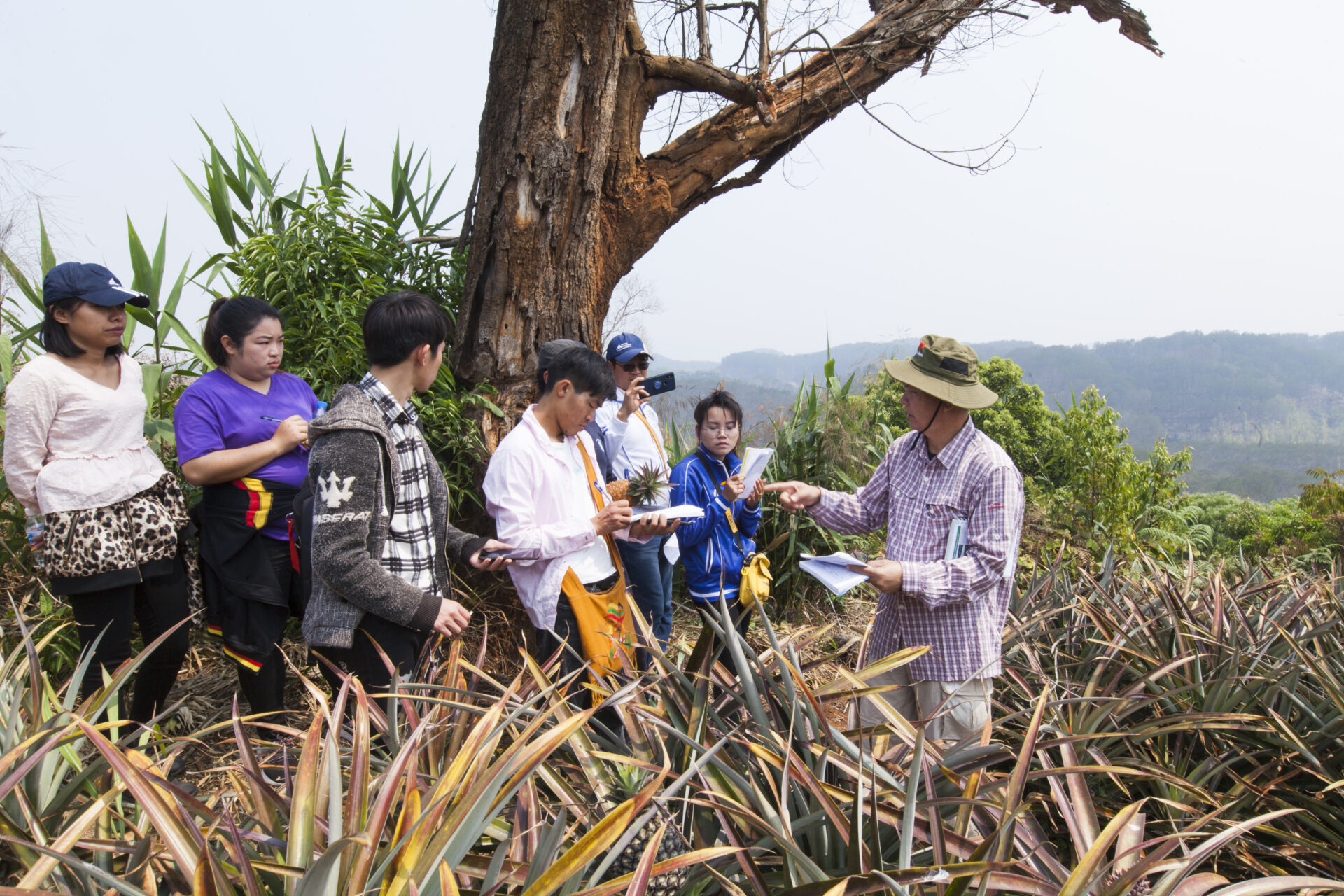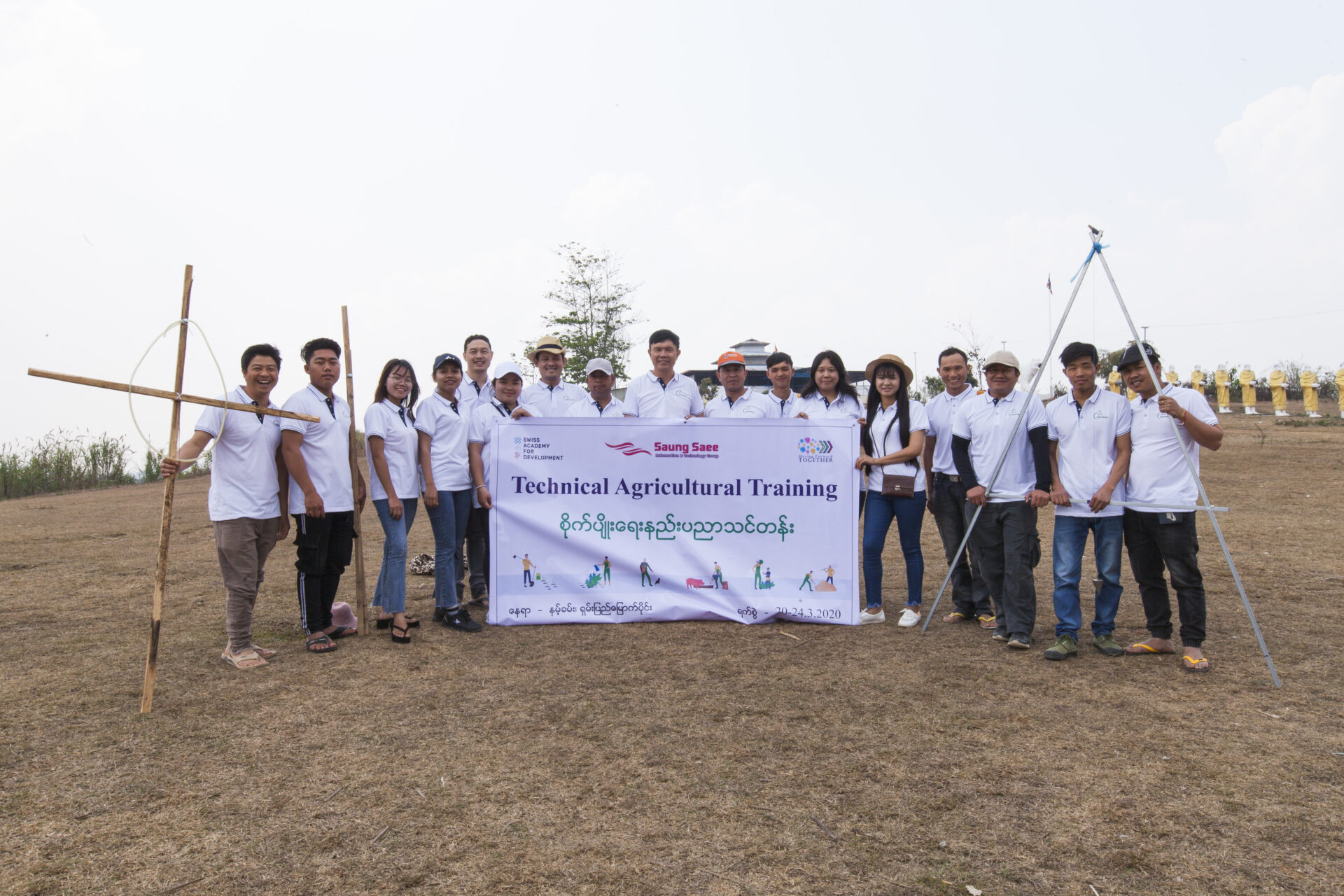MYANMAR IS ONE OF THE POOREST COUNTRIES IN THE WORLD. AROUND HALF OF THE POPULATION IS AFFECTED BY POVERTY OR IS ACUTELY ENDANGERED BY IT. IN SOME PARTS OF THE COUNTRY, ECONOMIC INSECURITY AND UNSTABLE POLITICAL CONDITIONS STILL PROVIDE FERTILE GROUND FOR VIOLENCE, HUMAN TRAFFICKING AND DRUG TRAFFICKING. YOUNG PEOPLE IN PARTICULAR LACK PROSPECTS FOR THE FUTURE. THEY SEE THEMSELVES AS THE "LOST GENERATION".
Since independence in 1948, Myanmar’s population has been through a lot. Despite peace agreements, civil war-like conditions and ethnic tensions still prevail in some parts of the country. These limit the economic development of those regions, which are predominantly agricultural.
Opportunities for vocational training are lacking, and young people often have to travel to other counties to complete apprenticeships. This is precisely where the SA4D project comes in. Working with a local Partner organisation, SA4D creates concrete alternatives to illegal businesses. The project “Shan Youth YEEA(H) – Young entrepreneurs for ecological alternatives”, launched in 2019, is committed to an economically and ecologically meaningful future for young people in the northern states of Shan and Kachin in Myanmar.
GOAL: YOUNG ENTREPRENEURS
Young people aged 16-30 are at the centre of the project, which is a joint initiative of SA4D and the local organisation Moving Forward Together. Around 200 young people from the youth group Saung Saee – in the local Shan language the “coming together of two rivers” – benefit from interactively facilitated business and agricultural training. This gives them the agricultural and entrepreneurial skills they need to process and ultimately market sustainably produced agricultural products. The aim is to jointly establish a profitable cooperative.
The training opens up concrete opportunities for them away from crime. At the same time, the intensive cooperation between SA4D, Moving Forward Together and the Saung Saee youth group results in a transfer of knowledge that strengthens the local organisations and has an impact far beyond the project.
EXAMPLE: FROM ORANGE TO ORANGE JUICE
Various workshops, excursions, market visits, field trips with agricultural experts, case studies and role plays form the basis of the training of the prospective young entrepreneurs. In an interactive and playful way, they learn about the principles of entrepreneurship: from theoretical concepts, analysis, financial planning and risk assessments to the importance of networks and value chains.
One example: using oranges as a case study, the young people work out what they need to consider in order to market their product. After analysis, discussions, hygiene measures, design experiments and coordination, a box of oranges is turned into several bottles of orange juice.
POSITIVE INTERIM BALANCE
The project has been running for more than one year, and despite COVID-19-related interruptions, the results have been positive so far: through relevant and locally adapted education and training, new opportunities will open up for young people in the future.
Involvement in illegal industries is therefore moving into the far distance. Thanks to their basic knowledge of business and agroecology, the young people are now able to identify new ecological and economic opportunities.


